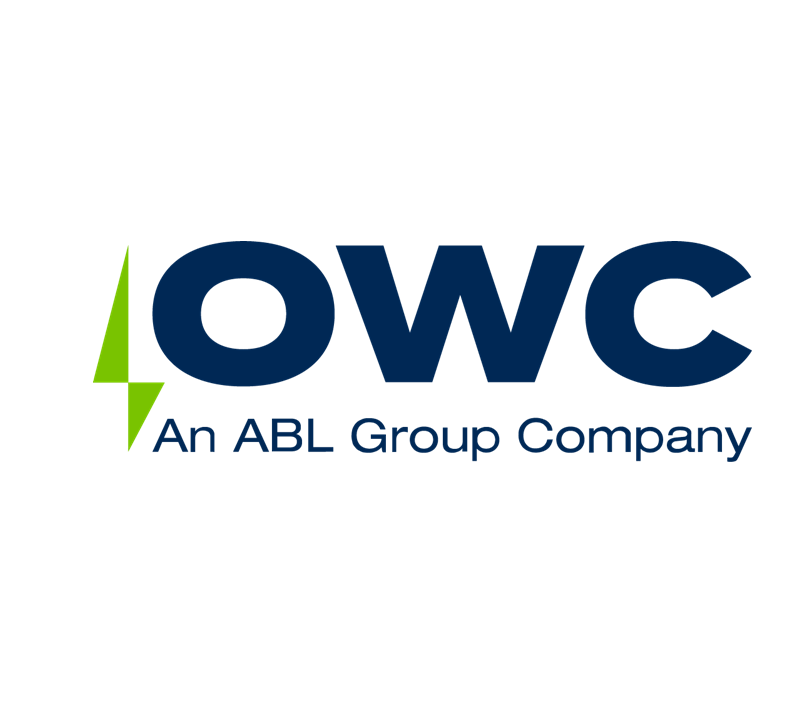By Bernardo Kahn, MSc (Senior Offshore Renewable Energy Engineer at OWC France) and Rémy Pascal, PhD (Metocean Leader and Principal Consultant at OWC UK)
OWC, an ABL Group company, is a specialist renewable energy consultancy operating globally. We offer concept and project development services, engineering and technical due diligence across global onshore and offshore wind, solar PV, subsea cables, hydrogen, energy storage, ocean energy and renewable ports and harbours. Our aim is to provide optimal services in a sustainable manner, working to de-risk and drive the energy transition.
We are delighted to be one of the partners in WEDUSEA and to bring our expertise to this ground-breaking wave energy project.
Formerly known as INNOSEA (our name at the outset of the WEDUSEA project), the company adopted the name of its sister company OWC in July 2025. By joining forces under the OWC brand, we are able to unlock greater synergies, expand our reach, and offer even more comprehensive solutions to our clients in more than 40 countries around the world.
With more than 200 experts, OWC’s team possesses strong industry expertise dating back to the first offshore wind farm development in the UK. Since then, OWC has expanded service offerings to the full renewable energy sector, with key team members involved in the majority of the major offshore wind and renewable energy projects in Europe, Asia-Pacific and the US.
Our global office footprint now covers 16 leading renewable energy markets. OWC offices are located in the United Kingdom, Ireland, France, Spain, Greece, Germany, Denmark, Poland, Vietnam, Japan, Korea, Taiwan, Australia, United States, Brazil and South Africa, and we also have a presence in Colombia, Portugal and Italy.
Our role in the WEDUSEA project
At OWC, we are leading on a number of vital tasks for WEDUSEA, including the pioneering development of a Machine Learning model. This is an exciting era as AI and Machine Learning are set to revolutionize global industry, increasing productivity and expanding horizons. We are extremely proud to be at the forefront of these developments through the work we are doing for WEDUSEA.
Here is a summary of our key tasks on the WEDUSEA project.
- Metocean Data Analysis at the EMEC site
- We have analyzed and produced the environmental data necessary for the project at the EMEC site such as wave conditions, water level variation, wind speeds, etc.
- Mooring Design of the prototype
- We have supported other partners in the mooring design process by building a numerical model and performing simulations.
- Exploitation of prototype data to build a Machine Learning model
- We will use the data collected during the deployment period to feed a Machine Learning model in the hopes of being able to predict environmental loads experienced by the device in sites with similar conditions as EMEC, without having to perform numerical simulations. This is an innovative project within the marine energy industry and one which is attracting attention as it is so cutting edge.
- Feedback of WEDUSEA outcomes to the IEC
- The WEDUSEA project will help to provide relevant information for the IEC Working Groups to update the IEC technical standards relative to design and operation of wave energy converter devices. Together with other WEDUSEA partners, Rémy from OWC takes part in IEC Working Groups that form the composition of these international technical standards. (Find out more here https://wedusea.eu/setting-international-standards-for-the-future/)
- LCOE Evaluation and Path to Commercialization
- We will calculate the Levelised Cost of Energy for the WEDUSEA project, starting from a baseline cost for a single machine, and projecting it to a commercial farm size and beyond. We will also look into aspects related to decommissioning and end of life.
Our Scientific Papers on WEDUSEA
We are pleased that our work on WEDUSEA has also been the subject of two scientific papers already – and we plan that this will be followed up by a paper on our pioneering Machine Learning model at a later stage.
Together with our OWC colleague Maxime Chemineau, we (Bernardo and Rémy) co-authored a paper which was presented at the EWTEC 2025 Conference concerning the metocean data analysis work for WEDUSEA mentioned above. The title is: “Automated WEC Metocean design basis from ResourceCode data.” In this paper, our main goal is to present how we have used a tool called ResourceCode to automate the data acquisition and processing of metocean parameters that are important in a Wave Energy Converter design process. ResourceCode is an open-source tool developed by a consortium of research partners (including Rémy Pascal) in which the objective was to support the design of Wave Energy Converter concept projects from early stage with high quality and relevant metocean inputs, mostly from the North Sea and the Atlantic Ocean.
We have also co-authored with other WEDUSEA partners a research paper that was published in the Ocean Engineering scientific journal in June 2025, on the subject of the mooring design scope. You can read the paper here: https://www.sciencedirect.com/science/article/pii/S0029801825009485
In summary, we are extremely proud to be partners in the WEDUSEA project, delivering a range of vital tasks, and we are looking forward to exploiting the WEDUSEA prototype data to build a Machine Learning model that sets a new standard for Machine Learning applications within ocean energy.















